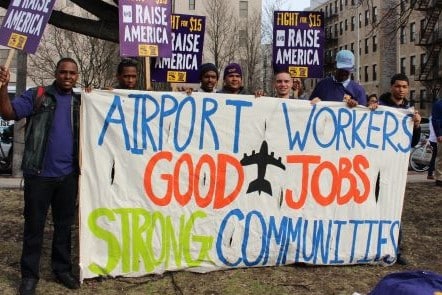Harvard Law School professor Terri Gerstein writes that the case of the IC whistleblower is strangely familiar to her.
A worker learns of brazen violations of law and feels compelled to speak up. The boss and his buddies go bananas, demanding to know the worker’s identity, making veiled or explicit threats, disparaging the worker’s credibility…

Gerstein is director of the State and Local Enforcement Project at the Harvard Law School Labor and Worklife Program. Writing in The American Prospect, she describes what she’s seen in her years of enforcing workplace laws: A fast food is worker fired after reporting a gas leak to the fire department. An airport skycap reported fired the day after appearing at a press conference about minimum wage violation. Countless examples of workers being pressured to stay quiet about sexual harassment.
These examples point to the need for better protections for workers who report serious illegality. The focus on these high-profile whistleblowers should be a catalyst for strengthening whistleblower laws in general, which are currently a patchwork.
Protections vary from statute to statute and from state to state. Ideally, these laws would include strong protection against retaliation; confidentiality; standing for whistleblowers to bring their own lawsuits; and finally, incentives for coming forward. These goals are not unrealistic; the False Claims Act, for example, allows people reporting fraud against the government to file their own lawsuits. The Securities and Exchange Commission and the Internal Revenue Service have paid millions of dollars to whistleblowers who have provided original information leading to successful enforcement actions.
Gerstein notes that workplace activism often extends to issues outside the workplace these day, citing the walkout at furniture company Wayfair. Workers there were protesting the sale of beds to migrant detention centers.
But Elizabeth C. Tippett of the University of Oregon writes that whistleblower laws may not protect these workers. She points out that whistleblowers have to walk a tightrope if they want to keep their jobs. Tippett notes that the IC whistleblower could have been charged with a crime if he or she went straight to the press.
From The Conversation:
Today’s social activists don’t really qualify as whistleblowers, though.
Whistleblower protections are designed to protect those who disclose important information about misconduct to corporate heads or government authorities. Like a sports referee, true whistleblowers are pointing out a violation that others overlooked. Social activists in the workplace, by contrast, lend their voice to a known cause.
In that sense, social activists are perhaps most closely analogous to employees who object to work assignments on religious grounds – a pharmacist who refuses to fill prescriptions for religious reasons, for example. But those workers are on much firmer legal ground, because Title VII of the Civil Rights Act requires employers to provide some accommodation for workers’ religious beliefs.
By contrast, employers can and do punish workers for activism they consider too disruptive or distracting.


